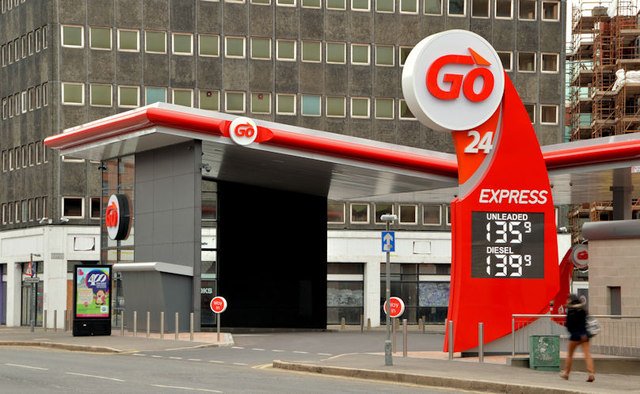Petrol Prices Hit Hard: How Rising Costs Are Impacting UK Drivers
Petrol prices in the UK have been a hot topic for years, but recent surges have left drivers feeling the pinch more than ever. With fuel costs reaching record highs, many are struggling to cope with the financial burden of filling up their tanks. In this blog post, we’ll explore the factors driving these price increases, the impact on UK drivers, and what can be done to alleviate the pressure.
Why Are Petrol Prices So High?
The surge in petrol prices is the result of a combination of global and local factors. Here’s a breakdown of the key contributors:
Global Oil Market Volatility:
The price of crude oil, which is used to produce petrol, has been highly volatile in recent years. Geopolitical tensions, such as the Russia-Ukraine conflict, have disrupted supply chains and driven up costs. Additionally, OPEC+ (the Organization of the Petroleum Exporting Countries and its allies) has been limiting oil production to keep prices high.Weak Pound Sterling:
The UK imports a significant portion of its oil, and the value of the pound against the US dollar plays a crucial role in determining petrol prices. A weaker pound means higher costs for importing oil, which are then passed on to consumers at the pump.Taxation and Duty:
The UK government imposes fuel duty and VAT on petrol, which significantly increases the price drivers pay. While fuel duty has been frozen since 2011, it still accounts for a substantial portion of the total cost per litre.Refining Costs and Margins:
The process of refining crude oil into petrol has become more expensive due to rising energy costs and supply chain disruptions. Additionally, retailers and fuel companies often increase their profit margins during periods of high demand, further driving up prices.
The Impact on UK Drivers
Rising petrol prices are having a profound impact on drivers across the UK. Here’s how:
Increased Cost of Living:
For many households, petrol is an essential expense, especially for those who rely on their cars for commuting, school runs, or running errands. Higher fuel costs are adding to the overall cost of living, leaving families with less disposable income.Impact on Businesses:
Small businesses, particularly those in the transport and logistics sectors, are feeling the strain of rising fuel costs. Many are being forced to increase their prices or absorb the additional expenses, which can hurt profitability and competitiveness.Shift in Consumer Behavior:
Some drivers are opting to use their cars less frequently or switch to more fuel-efficient vehicles to save money. Others are exploring alternative modes of transportation, such as public transit, cycling, or carpooling.Regional Disparities:
Petrol prices vary across the UK, with rural areas often facing higher costs due to limited competition and higher transportation expenses. This disparity is putting additional pressure on drivers in these regions.
What Can Be Done to Address Rising Petrol Prices?
While global factors are largely beyond the control of individual drivers, there are steps that can be taken to mitigate the impact of rising petrol prices:
Government Intervention:
Many are calling on the UK government to reduce fuel duty or introduce temporary relief measures, such as fuel subsidies or vouchers, to help struggling drivers.Promoting Fuel Efficiency:
Drivers can take steps to improve their fuel efficiency, such as maintaining their vehicles, driving at steady speeds, and reducing unnecessary weight in their cars.Exploring Alternatives:
Switching to electric vehicles (EVs) or hybrids can help drivers save money on fuel in the long run. While the upfront cost of EVs is higher, the lower running costs and government incentives make them an attractive option for many.Increasing Competition:
Encouraging greater competition among fuel retailers could help drive down prices. Transparency in pricing and stricter regulation of profit margins could also benefit consumers.
Opinion: Is the UK Doing Enough to Support Drivers?
The rising cost of petrol is a complex issue with no easy solutions. While the UK government has taken some steps to address the problem, such as freezing fuel duty, many argue that more needs to be done to support drivers during this challenging time.
Critics point out that the government’s focus on promoting electric vehicles, while commendable, does little to help those who cannot afford to make the switch. For many, petrol and diesel vehicles remain the only viable option, and the high cost of fuel is making it increasingly difficult to get by.
Ultimately, a balanced approach is needed—one that addresses both the immediate financial pressures faced by drivers and the long-term goal of transitioning to a more sustainable transportation system.
What Does the Future Hold for Petrol Prices?
Predicting the future of petrol prices is difficult, as they are influenced by a wide range of unpredictable factors. However, experts suggest that prices are likely to remain high in the near term, driven by ongoing geopolitical tensions and supply chain disruptions.
In the long term, the shift toward electric vehicles and renewable energy sources could help reduce demand for petrol, potentially leading to lower prices. However, this transition will take time, and in the meantime, drivers will need to find ways to cope with the current challenges.
Conclusion
Rising petrol prices are putting significant pressure on UK drivers, impacting household budgets, businesses, and overall quality of life. While global factors play a major role in driving these increases, there are steps that can be taken to alleviate the burden on consumers.
For drivers, staying informed and exploring ways to reduce fuel consumption can help mitigate the impact of high prices. For policymakers, finding a balance between short-term relief and long-term sustainability will be key to addressing this ongoing issue.









